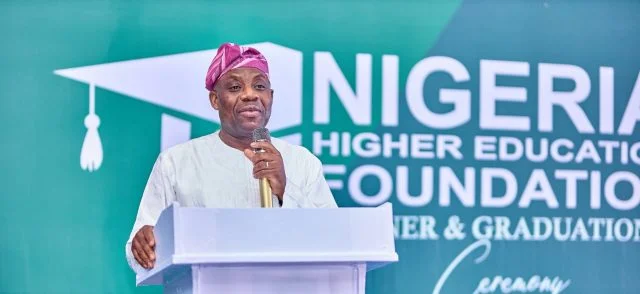Nigeria’s government boosts scholarship funds by 50% to empower students and grow youth skills. The plan raises payments to N750,000 for PhD students, N600,000 for Master’s students, and N450,000 for undergraduates, HND, and NCE students. This helps thousands afford quality education.
Budget and Policy News
In Abuja on Wednesday, Education Minister Dr. Tunji Alausa unveiled a N6 billion scholarship budget for 2025–2026.
The program supports President Bola Tinubu’s Renewed Hope Agenda to build a $1 trillion economy. It prioritizes Science, Technology, Engineering, Math, Medicine (STEMM), and vocational training.
New Scholarship Amounts
The government increases funding for programs like the Nigerian Scholarship Award. To tackle rising school costs, it sets new payments:
- PhD students: N750,000 (up from N500,000)
- Master’s students: N600,000 (up from N400,000)
- Undergraduates, HND, and NCE students: N450,000 (up from N300,000)
These updates make education more affordable for all.
Bilateral Education Agreement Updates
The government revamps the Bilateral Education Agreement (BEA) to focus on key needs. Current recipients keep their awards. The government redirects new BEA funds to two scholarships:
- N1 billion for polytechnic students in STEM and vocational programs.
- N1 billion for university students studying Medicine, Dentistry, Nursing, Pharmacy, or Physiotherapy.
These target skills critical for Nigeria’s future.
How Scholarships Are Divided
Dr. Alausa explains the new fund-sharing plan:
- 50% for undergraduates
- 25% for Master’s students
- 25% for PhD students
In each group, 70% of awards go to STEMM fields, and 30% support Social Sciences. This ensures a smart balance.
Focus on Fair Education
The government reserves 5% of scholarships for students with disabilities to promote fairness. This plan is expected to help over 15,000 students through the Nigerian Scholarship Award, Education Bursary Award, and updated BEA program.
Clear and Fair Management
The Federal Scholarship Board teams up with a committee led by the Ministry of Education’s Permanent Secretary. Members from the National Assembly, Federal Character Commission, and Ministry of Women Affairs ensure the process stays open and fair.
Shaping Nigeria’s Future
Dr. Alausa stresses that these scholarships build Nigeria’s talent pool, not just pay for school. By investing in education and fairness, the government empowers students to drive long-term growth and success.
New Bill Proposes Ban of Public Services For Public Servants




















